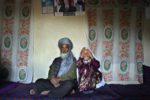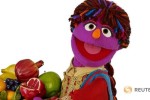The Real Girl’s Guide to Everything Else, Strike.TV’s peppy new Web series, first struck me as ludicrous. Fast-paced and low-budget, it’s riddled with plot holes and inconsistencies, becoming more fantastical as the first season progresses. The writing lacks depth, the characters lack development, and the show’s thesis whacks you across the head with startling regularity. But the message itself is bold, sharp, and significant.
Season One, consisting of six chapters less than ten minutes apiece, starts with Rasha (Robin Dalea), a Lebanese-American lesbian journalist, telling her best friends that her agent is going to drop her unless she pushes out some frothy “chick lit.” Vanna (Nikki Brown), Sydney (Reena Dutt), and Angie (creator and producer Carmen Elena Mitchell) devise a plan to fund Rasha’s desired project—a book titled The Women’s History of Afghanistan—through the advance from her novelette. In order to authenticate her chick-lit savvy, though, Rasha is tossed into the world of straight dating—a clear jab at the series’ Sex and the City inspiration. Of course, she’s also scheduled to marry her longtime girlfriend, Liz (Jennifer Weaver), in two months.
The show is miraculously self-aware, especially when it references Sex and the City. Brown’s character, Vanna, mentions early on that Rasha’s book could be something of a “Sex and the City for brown women,” to which Mitchell’s character, Angie, responds that she can be the “token” [white girl]. The plotline pulls just enough from SATC for old-school fans to recognize glib renditions of Carrie’s opening-credits bus-splash or Samantha’s sex obsession, but the NPR and Aymar Jean Christian interviews with the cast make clear that the production was a concentrated effort to invert the assumptions of Sex and the City-style popular culture. It truly is very feminist in nature.
Real Girl’s Guide, for its part, attempts to be representative of “real women”—thus the lesbian protagonist and her multi-ethnic friend-group. It provides new roles for women of color who are usually typecast by mainstream media, largely rejects materialism, and expands the conversation about women’s careers. But its weakness lies in its less-than-useful representation of lesbians and Afghan women.
It’s not unrealistic that Rasha’s more masculine gender identity would get in the way of her life goal, but it is unrealistic—and possibly detrimental to butch-identified lesbians—that she would radically alter her gender expression as though this feminized counterpart lived inside of her all along. What we eventually see is the capitulation of a strong lesbian character to a gaggle of cisgender women who have fun temporarily turning her femme, much to her partner’s ire.
The show’s general treatment of lesbianism is similar to the way in which Orientalist tropes are later handled: through a never-ending track of teachable sound-bites. Though Liz clearly hates the heterosexual dating-game that her partner is playing, Rasha continues to glaze over the degree to which she’s involved in the experiment. She neglects to share with Liz that she has an internet dating account and that she’s found her “Mr. Big”—a deep-pocketed Republican who looks eerily like Rush Limbaugh.
Apparently, all of this secrecy stems from Rasha’s fear of the impending wedding—another SATC reference, and, ostensibly, a way to showcase lesbian normalcy (See? Even lesbians get cold feet). By Chapter 3, every lesbian reference starts to feel a bit like that: See? Even lesbians like fashion/lie to their girlfriends/have relationship problems. To its credit, the season’s only almost-sex scene is a lesbian one, so the effort to normalize lesbian relationships is not entirely fruitless; and, that almost-sex scene ends with an interesting argument about the value of marriage to gay couples.
Rasha’s religion is never made clear (though at one point she mentions that if she’s caught in a sexual situation with Big, she’ll just tell him that if he tries anything her brothers will cut off his hands), but the issue of representation becomes a little thornier when Big offers to take her on (what he believes to be) a romantic get-away in Afghanistan. There, in their little two-week tent-home, Rasha arranges an interview with an Afghan woman. “The last journalist who came here gave me this,” the woman says, holding out a copy of the book Love, Lunch, and a Macy’s Sale. “This is your idea of equality?” Rasha assures her that it isn’t; that most American women don’t have the time or the money to shop frivolously. It’s heavy-handed, but it aptly conveys the point.
And then Big is back from his jaunt, having just befriended the local mullah, and it gets a little crazy. At risk of giving away the season’s climax, let me just say that the opportunity to make a point about Afghan women came and passed. The apex—though it was in fact filmed before the release of the SATC 2 movie—rips a page from its predecessor’s absurdity, losing the chance to lend gravity to Rasha’s subject matter and instead choosing to make the story, once again, one of love and romance. Really, one of the only serious points in Real Girl’s Guide dissolves into a sob-fest in the underground lair of a Taliban warlord named Habib. Hardly helps the cause, ladies.
While the show is full of other small ironies and departs from the mainstream in its message, it also glosses over representational issues as though by merely inserting a lesbian or a woman in hijab, its goals have been met. Nevertheless, it deserves another chance—and will likely get one, this winter, if it meets its fundraising goals. You can contribute here.



